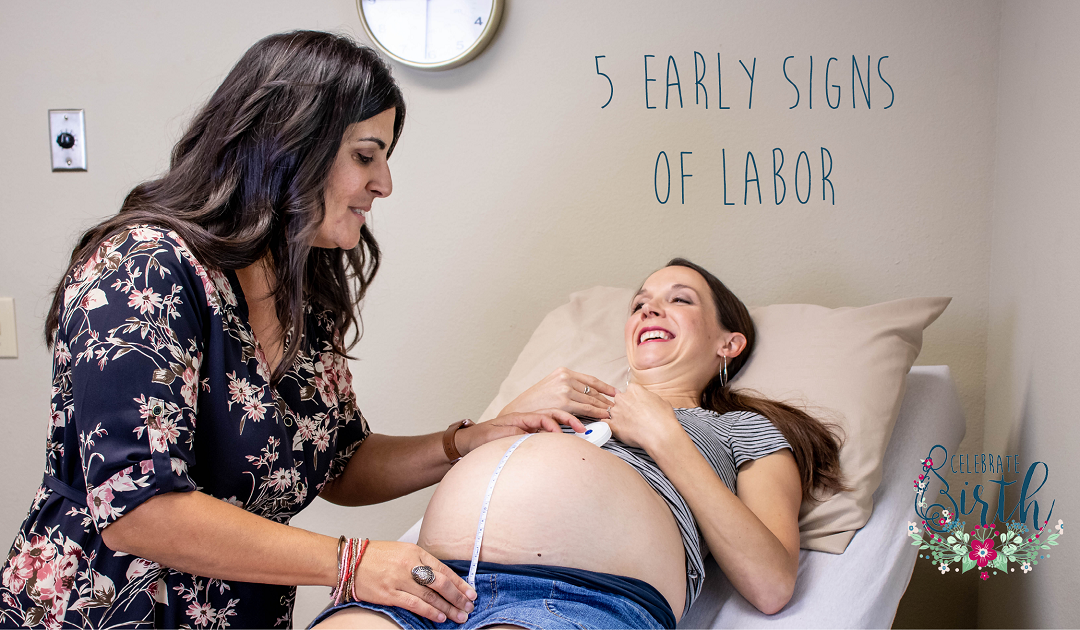5 Early Signs of Labor
Labor is the process of your baby leaving the uterus (womb). There are four stages of labor, and within each stage there are different phases that you will experience. Like all things surrounding your pregnancy, labor will differ from woman to woman. The experience of giving birth can and most likely will be different from one pregnancy to the next, so there is no way to know just how a woman’s labor will progress or how long it will last. However, the body can give off some clues that a woman might be going into labor. Below are five common signs to look for if you are getting close to your due date.
The Signs:
1. Baby Drops
Anywhere from a few hours to a few weeks before labor begins, a woman may look and feel as though the baby has dropped into a lower position in her pelvis. When this happens it is called lightening. Your baby’s head drops lower and becomes engaged with your pubic bone, starting their descent down and out.
2. Lower Back Pain and Cramping
Another common occurrence is lower back pain or cramping that comes and goes as the pressure builds in your pelvic/rectal area. This pain usually stems from strain on your back muscles, weak abdominal muscles, and pregnancy hormones.
3. Water Breaking
The rupture of the membranes, also known as “water breaking,” is a common experience for mothers, in which the amniotic sac that surrounds the baby breaks. It can be experienced as a gush of fluid or a slow trickle. This can occur before contractions begin or at any time during labor, right up to the delivery itself. If your water breaks after 37 weeks but before you start having contractions, the start of labor will usually follow soon after. If this occurs, your healthcare provider can help you navigate the best methods to encourage contractions to begin.
4. Increased Bodily Functions
There are a lot of hormonal changes that occur early in labor that can cause increased bodily functions like nausea, diarrhea, vaginal discharge, and a very active bladder. Of course, these things can all be just a part of a typical day in pregnancy – but for some women they can also mean that labor will begin soon.
5. Contractions
You may experience Braxton Hicks contractions, which are usually sporadic and a way for the body to prepare for true labor. Some can be quite uncomfortable, but they are not a sign that your labor is beginning. In true labor, you will experience very regular contractions that can be felt in your back as well as throughout your belly, especially down low. If they are labor contractions, they will become progressively stronger and closer together.
We hope these early signs of labor will help you better understand what you might experience when it’s time for your labor to begin. If you have questions about any of these signs or other symptoms you may be experiencing, contact your care provider. If you are a client or considering coming into care with us, give us a call at 863-680-2229.

